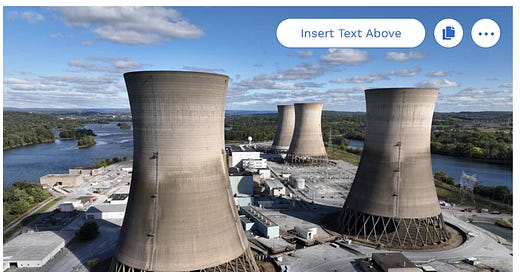The energy media has been filled in recent months with stories about the prospects for AI and other new technological advances to drive either a renaissance in nuclear power generation or a boom in demand for natural gas and gas-fired power plants. Two great examples came this week when the Wall Street Journal ran a major piece predicting a big tech-fueled rapid nuclear expansion one day after Bloomberg ran a story predicting natural gas would be a major beneficiary of the tech-driven energy demand.
So, which is it going to be: A nuclear renaissance, or a new gas boom? The answer seems likely to be some combination of both.
AI: A New Chance For Gas To Shine
Bloomberg’s report plays off comments delivered to investors during this week’s earnings rollout by BP CEO Murray Auchincloss, who says natural gas stands to be a major player in the efforts by tech firms to secure reliable, 24/7 power generation to fuel the massive data centers being installed in many regions of the US.
Although BP’s stock price dropped by 3% in the wake of its lowest quarterly earnings since 2020, Auchincloss believes the company’s strong position in natural gas will become a major factor in turning things around. He also emphasized BP’s ability to combine gas generation with renewables as an attractive option for tech firms to meet net-zero commitments while securing the continuous energy streams needed by their data centers.

“Hyperscalers are driving crazy demand into natural gas right now,” Auchincloss said during Tuesday’s call. “I’m pretty optimistic on natural gas prices through the decade.”
Opponents of fossil fuels are not thrilled with this development. The Seattle Times reported in September about the Sierra Club’s concerns that U.S. power companies “announced plans to build more gas power capacity across the U.S. than they did in all of 2020” during the first six months of 2024. The Sierra Club notes that a similar pace of new announcements for the 2nd half of the year would make 2024 the fastest-growing year for natural gas power generation since at least 2017, the first year the organization began tracking such data.
Keep reading with a 7-day free trial
Subscribe to Energy Transition Absurdities to keep reading this post and get 7 days of free access to the full post archives.




